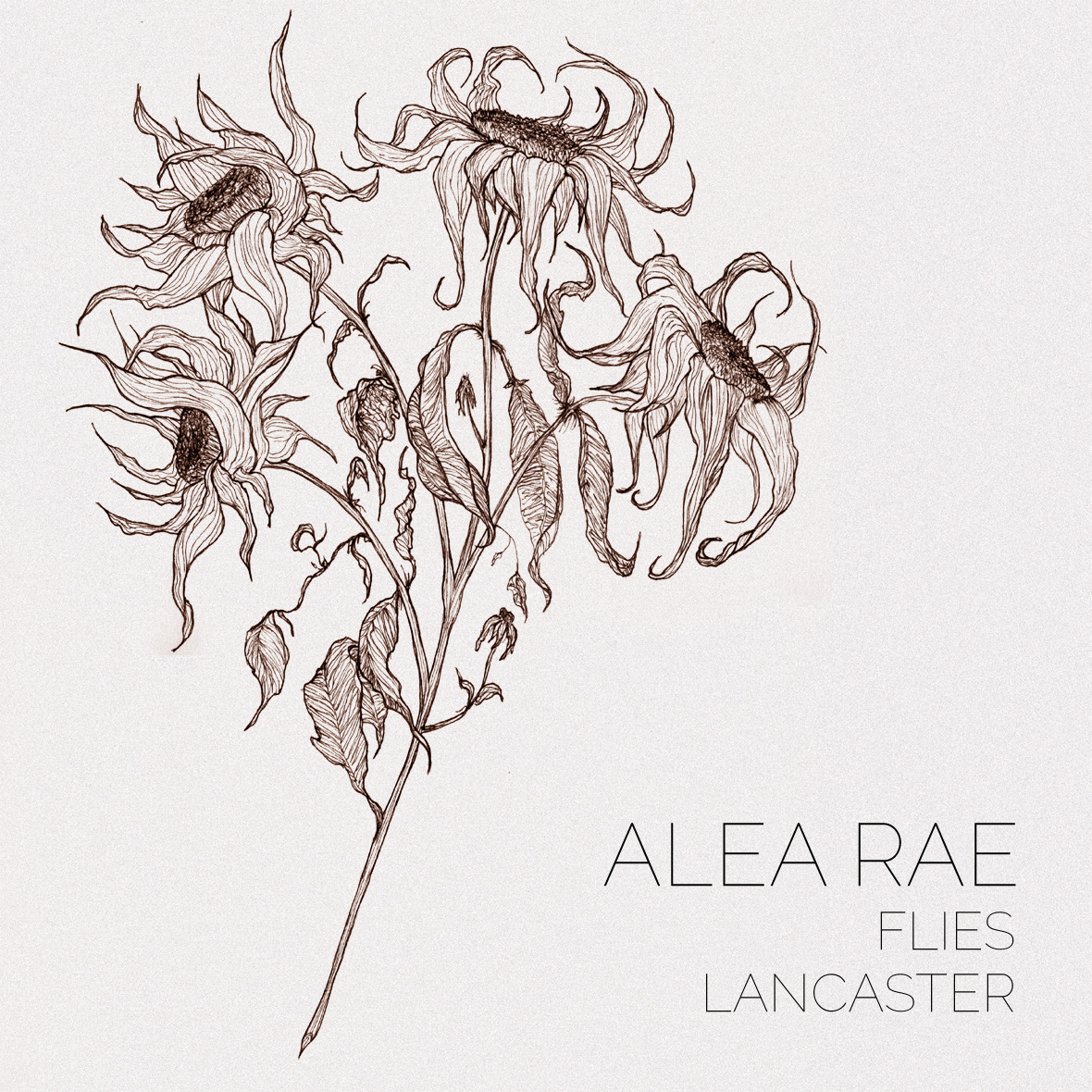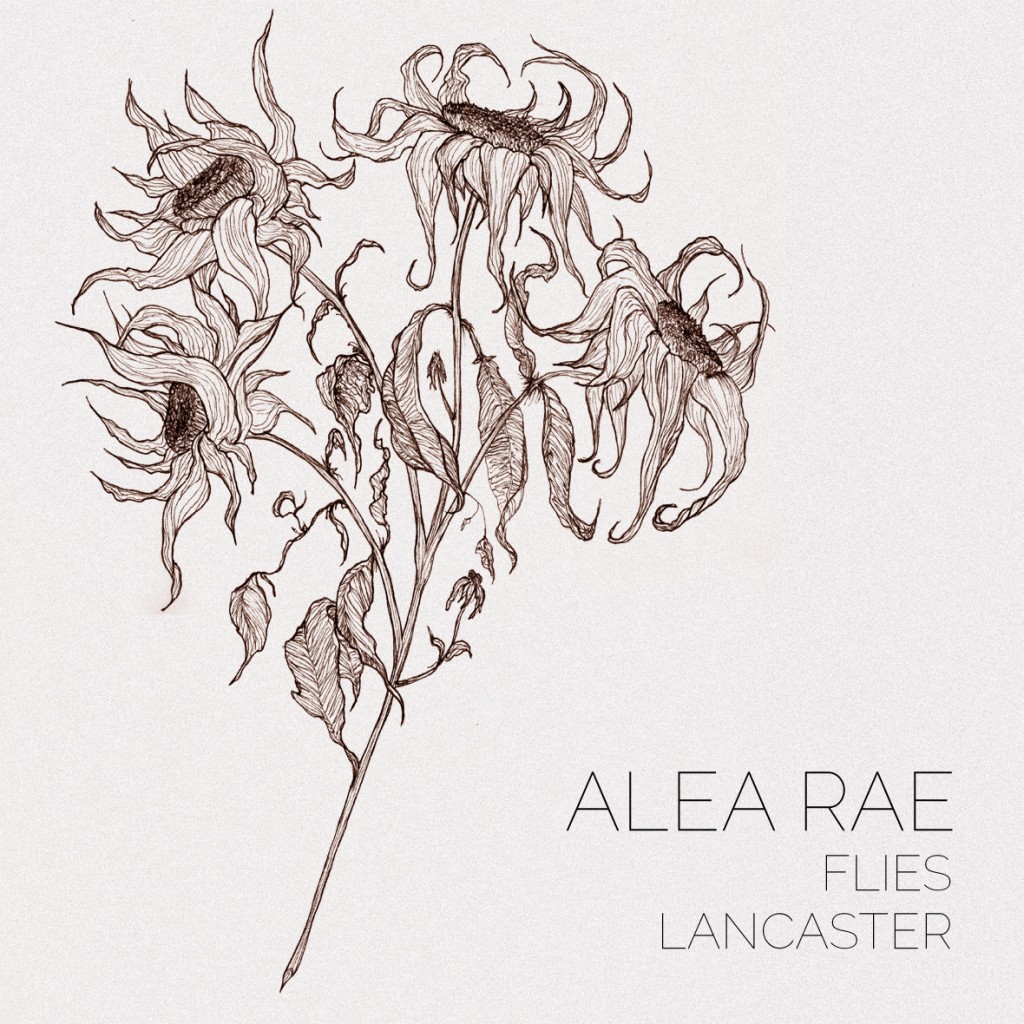By Mitch Huttema (The Cascade) – Email
Print Edition: February 4, 2015
While attending their Acoustic Emporium show in Chilliwack, I interviewed Alea Rae, comprised of Alea Clark on rhythm guitar, Jeremiah Ackermann on drum kit, and Patrick Farrugia on lead guitar. Over the two years they’ve been together, the New Westminster band has developed an atmospheric indie folk sound, and have been likened to the National and Daughter. Alea Rae have most recently released a double-single titled Flies and Lancaster, which can be found on their Bandcamp page and downloaded by donation.
You’ve been compared to the National, Daughter, and even Sigur Rós. Are you influenced by those bands or are there others?
P: Those are basically our influences! We’re also heavily influenced by local acts — We are the City, Aidan Knight. Those are super influential. Because you know there are such great bands in BC, you can’t help but be influenced.
What inspired you to take up music?
P: I come from a musical family. Both my parents are professional musicians, so I kinda just grew up in it. Doing piano lessons when I was young, you know, I was the one who continued with that.
J: I started playing drums when I was in grade 10. I don’t know what it was, I just kinda wanted to play. And then I was in a band with some friends I had recently met. It was rock music but I just really pursued it.
A: I don’t know, I don’t know. I just remember wanting to do it so bad so I started doing it. I was so bad, I was waiting for someone to tell me to stop, but no one did, so I just kept going. I was in high school.
What is the source of your inspiration to write music? Is it walking down the street, seeing and thinking things, or does it come from some traumatic event?
A: I’m having a hard time pinpointing that right now. I’ve been through enough stuff that I’m like, shouldn’t I be writing? I feel so horrible right now! [Laughs] But it still doesn’t happen that way. Sometimes I just get really angry — “I haven’t written anything, I’m going to write now.”
P: Sometimes it just sort of comes to you. Sometimes I hear a chord progression or melody in my head and I’m like, “Oh, I wanna write that.”
J: I record melodies on my phone all the time — sometimes just before I’m about to go to sleep, I’ll just think of something.
How would you describe the type of music you make? Do you aim for the same type of sound all the time?
P: It’s hard to pinpoint. We all bring something and then it becomes a melting pot of all of us.
How do you write music? Is there a particular way you go about it each time?
A: Right now we’re trying to work that out. At first I had all this stuff that I had written and they had to write around it, but now it’s a lot different.
P: We use all sorts of methods. I guess we’ll find out what works best.
What is the main thing you want to impart to your listeners with your music? A feeling?
P: Intense, ultimate depression. [Laughs]
A: I guess if they’re engaged and it does something for them … If something moves me, that’s really powerful. That’s all we can hope to accomplish.
P: I guess to find comfort in things. [Our music] helps people to deal with the, like, negative feelings.
J: I’m playing drums. I do it for selfish reasons, and it feels great to play. People don’t emote so much toward drums.
What has the reception to the band and your music been like?
A: Really positive!
P: Not to brag, we’re world famous. It sucks, being the biggest band in the world, but it happens! [Laughs]
J: I’m really happy with where we are. We have a strong, loyal following. It makes me feel like we’re doing something right.
So you’re working on your tour now, what’s next?
P: Writing and recording is next on the ballot. Like Alea said, to slow down and focus on writing.
So we can expect an album soon?
A: I don’t want to promise anything, I’m just taking this break, and whatever happens from there we can map out the rest of the year. I don’t want to put anything on the table yet.
P: We’re definitely going to have music out in the next six years, though.
Do you have any thoughts or comments about the tour? This is your first?
J: We definitely need to work on itinerary. We got here and everything was closing around 4 p.m. so we couldn’t get food! I’m really enjoying it, though. People have been really friendly! We’ve had really great reception.
What are your greatest struggles and challenges as musicians?
A: I had a vocal injury last year, and it just took a long time to recover. Even now I’m still not all the way there.
P: Just trying to find the drive at points to write and record, because the rest of life just tires you out.
J: I know my biggest difficulty is just transporting drums!
Is it tougher to start out as a band in New West and Vancouver because there are so many other bands, or is it easy because there’s a musical community and audience?
A: I think there’s so much going on, it’s hard to bring new people out. You kind of build a following very slowly, but then those same people will be loyal … or people will just go to the bar they like and will go, “Oh, who’s playing?” instead of finding anyone they want to hear sometimes.
J: Every night there like 10 shows. It’s difficult to find the people you want to work with, but it’s great because there’s a huge selection.
P: There are so many anchovies in the sea, it’s hard to find the salmon.
Is this band a temporary thing? Or do you plan to keep it up for as long as you can?
J: I think we want to do it professionally forever.
P: It’s my 100 per cent ultimate goal to make it my career.
J: I think that’s especially the idea because we have a sound we haven’t pinpointed yet, so I think people will grasp on to that.
This interview has been edited for length and clarity.



